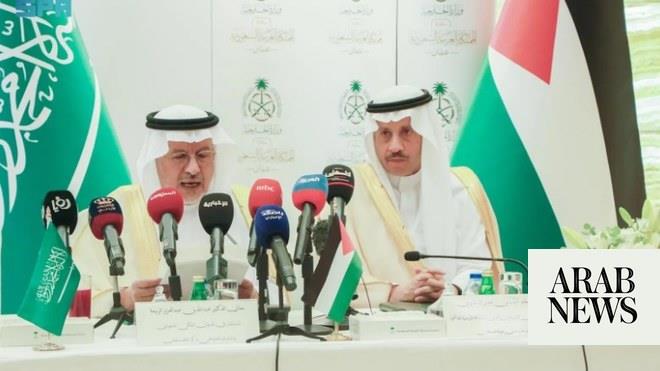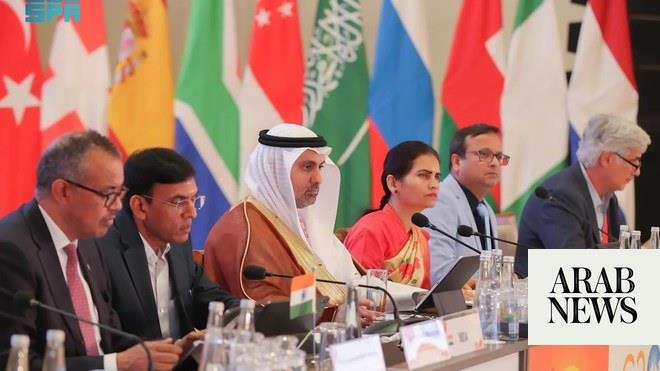
MAKKAH: The head of Saudi Arabia’s international aid charity has warned that great strides made toward eradicating diseases such as polio could be undone unless the world united to tackle new health challenges.
Dr. Abdullah Al-Rabeeah, general supervisor of the King Salman Humanitarian Aid and Relief Center, told a polio program donors’ conference in Berlin that a world free of the viral infection was edging ever closer.
But he said that exceptional efforts were needed to share the burden with UN organizations to help them deal with the fallout from the coronavirus pandemic and the current global food crisis.
Representing the Kingdom at the conference, he pointed out failures in providing affected areas with the necessary vaccines, a situation, he said, that could overturn decades of achievements.
Al-Rabeeah noted that the Kingdom was keen to deliver on its humanitarian responsibilities in combating measles and polio, adding that through the UN International Children’s Emergency Fund, the World Health Organization, and Gavi, the Vaccine Alliance, Saudi Arabia had made contributions totaling $57,666,667.
He said the country had also implemented $15 million worth of projects around the world to combat measles and polio, including KSrelief schemes totaling $11,140,090.
In partnership with the WHO and UNICEF, Al-Rabeeah said the Kingdom had signed two agreements to carry out projects to prevent and respond to the outbreak of measles and polio epidemics in high-risk countries, at a cost of $10 million.
And he highlighted the country’s and KSrelief’s ongoing support for international efforts to eradicate polio.
Dr. Ghada Al-Ghunaim, a member of the King Abdulaziz Center for National Dialogue’s board of trustees, told conference delegates that Saudi Arabia continued to play a leading international role in various political, economic, and scientific fields.
She said: “This comes within the responsibility and commitments that the Kingdom has undertaken regionally and globally and the pivotal role it plays.
“Today, through the international aid platform, Saudi Arabia announces the disbursement of more than $83 billion in various development and humanitarian projects.”
She pointed out that the Kingdom’s participation in the fight against polio was a natural result of its work domestically to eliminate the disease.
Al-Ghunaim noted that this had been achieved, “through intensive awareness programs over the years, activating vaccine programs, and taking into account all precautionary measures with those coming for Hajj and Umrah, with the participation of several bodies inside the Kingdom.”
She added that the Kingdom was able to share its experiences and provide financial support toward efforts to fight polio in other countries.
Dr. Lamia Al-Ibrahim, a family medicine consultant specializing in public health and health systems management, said Saudi help would be ongoing.
“The evidence for this is the huge financial budgets the Kingdom offers in the health sector, serving visitors and residents. Internationally, the Kingdom’s efforts are clear in helping with nutrition, subsistence, vaccinations, and the eradication of epidemics,” she added.
Consultant medical physicist and former director of Makkah’s maternity and children’s hospital, Dr. Anas Abdel Hamid Sedayo, said the world owed a debt of gratitude to the Saudi leadership for its humanitarian role in helping combat epidemics, infectious diseases, polio, and measles.
He added that children’s hospitals in Saudi Arabia played an important part in providing vaccinations against the disease.












